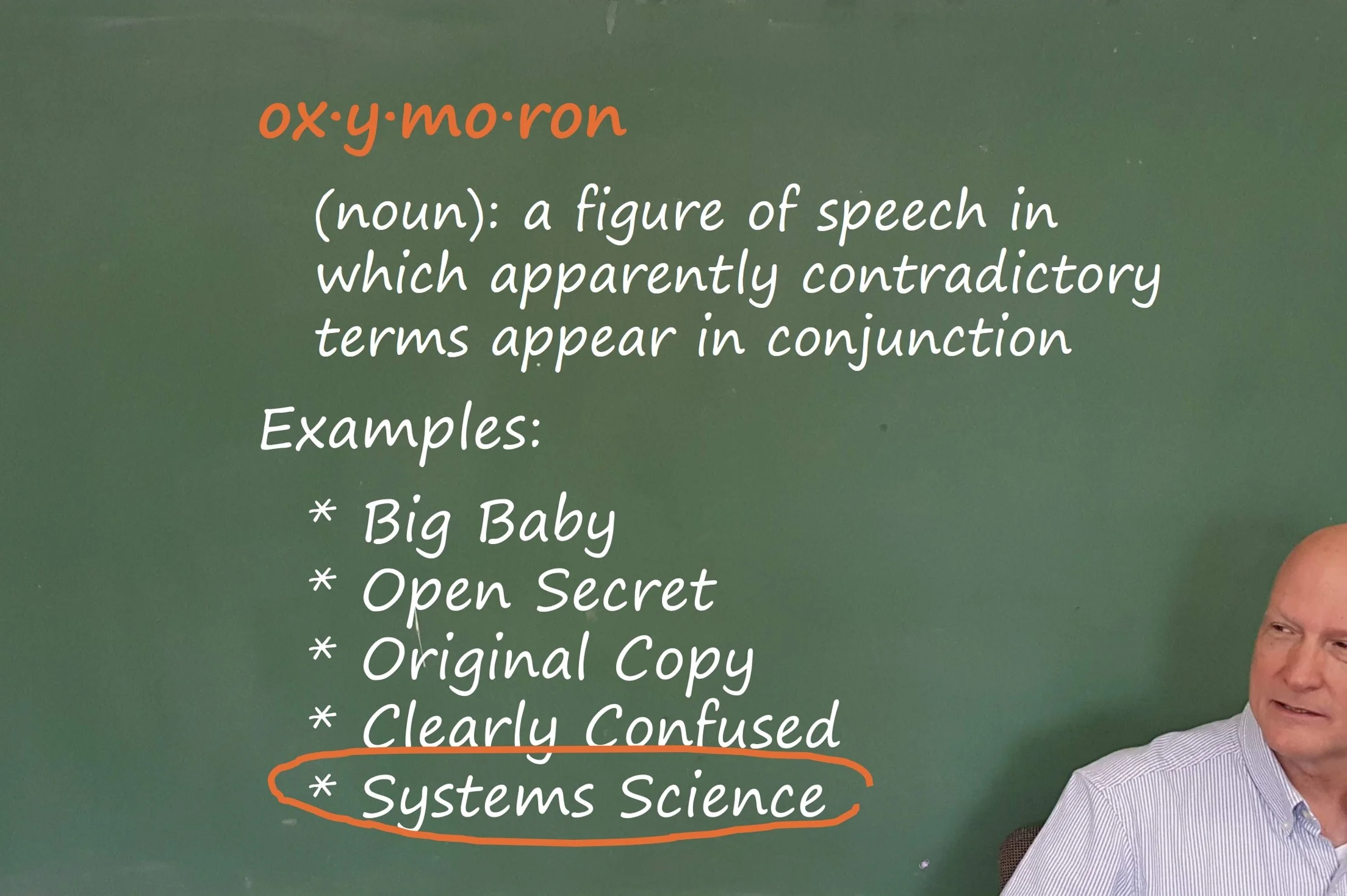“The whole is greater than the sum of the parts.” A phrase attributed to Aristotle and misquoted by those seeking to understand one of the most mysterious properties of a system: Emergence. [read my exploration into that topic] The phrase is also used to explain the importance of Synergy and the foundations of Gestalt theory. Let’s take a closer look at this expression and try to ascertain what Aristotle was trying to say when he wrote the phase some 2370 years ago.
The phase can be found in Aristotle’s Metaphysics. Within this writing the phrase, “The whole is greater than the sum of the parts” doesn’t turn up until Book VIII, 1045a.8–10. Let’s look at the whole quote and try to see if the context of Aristotle’s thought process can be understood. Here’s the 1908 translation by W. D. Ross:
“In the case of all things which have several parts and in which the totality is not, as it were, a mere heap, but the whole is something besides the parts, there is a cause; for even in bodies contact is the cause of unity in some cases, and in others viscosity or some other such quality.” [1]
As you can see, the phrase is not as attributed. The word “besides” is used instead of ‘“sum of.” “Besides” is a better word, since using the word “sum” evokes Euclid and the prospect that this concept utilizes Math in some way. Actually Math comes to a different conclusion when it comes to “the sum of the parts.” Euclid from his famous book Elements, Book I, Common Notion 5 says, “The whole is greater than the part.” [2] Which seems close to our phrase but Euclid is expressing how a whole can be split into parts, and any one of those parts, compared to the whole, is less than the whole. And using the Segment Addition Postulate – If point P is between points A and B, then AP + PB = AB. Ipso facto, the sum of parts equal the whole. So Aristotle’s “something besides the parts” is not a mathematical observation but a language observation. Or is it?
Let’s step back even further in context as to why Aristotle made this declaration in the first place and try to bring some context to the situation.
Aristotle’s Metaphysics is a series of writings or a collection of disparate treatises which are divided into fourteen books of different lengths and complexities. Aristotle never used the term Metaphysics (which literally means ‘After Physics’) but he did describe the subject matter of the work as ‘first philosophy’, or ‘wisdom’, or ‘theology’. He indicated that this was all about the study of ‘being qua being’ -- or ‘beings, in so far as they are beings.’ Aristotle is not an easy read. Words, meanings, and definitions are slightly different than their modern equivalents. Even the definition of “definition” needs to be re-examined in light of Aristotle's time and place. As explained by S. Marc Cohen in his article "Aristotle's Metaphysics", from the online Stanford Encyclopedia of Philosophy,
“It is important to remember that for Aristotle, one defines things, not words. The definition of tiger does not tell us the meaning of the word ‘tiger’; it tells us what it is to be a tiger, what a tiger is said to be in respect of itself. Thus, the definition of tiger states the essence—the ‘what it is to be’ of a tiger, ....” [3]
Understanding Aristotle's concept of definition is important when you step back and investigate the whole paragraph that includes our “the whole is something besides the parts” phrase.
“To return to the difficulty which has been stated with respect both to definitions and to numbers, what is the cause of their unity? In the case of all things which have several parts and in which the totality is not, as it were, a mere heap, but the whole is something beside the parts, there is a cause; for even in bodies contact is the cause of unity in some cases, and in others viscosity or some other such quality. And a definition is a set of words which is one not by being connected together, like the Iliad, but by dealing with one object.—What then, is it that makes man one; why is he one and not many, e.g. animal + biped, especially if there are, as some say, an animal-itself and a biped-itself? Why are not those Forms themselves the man, so that men would exist by participation not in man, nor in-one Form, but in two, animal and biped, and in general man would be not one but more than one thing, animal and biped?” [1]
You now find yourself in the midst of one Aristotle’s long and winding arguments, as he describes earlier in Metaphysics, a problem of the “unity of definition.” Definitions get complicated when they start including many terms (or parts). This isn’t just a language problem for Aristotle. Remember, for Aristotle, a definition is “an account which signifies what it is to be for something.” Notice he uses examples of objects not words.
Aristotle actually dealt with this issue of a definition (object) and terms (parts) in his treatise on the art of dialectic — Topics [Bekker number 100a] — in Book VI of this work he obsessively describes "definition" and the numerous means that may be used to attack and defend a definition. In chapter 13, he states
“... that the whole is not the same as the sum of its parts are useful in meeting the type just described; for a man who defines in this way seems to assert that the parts are the same as the whole. The arguments are particularly appropriate in cases where the process of putting the parts together is obvious, as in a house and other things of that sort: for there, clearly, you may have the parts and yet not have the whole, so that parts and whole cannot be the same.” [4]
So we have found two quotes by Aristotle that are very close to the phrase, “The whole is greater than the sum of the parts” but not quite. And we now can see that Aristotle was mainly concerned with explaining the multifaceted aspects of definition (object) and terms (parts). But this concept about the whole, and its relationship to its parts, is the beginning of thinking about Systems and that very difficult and mysterious property of Emergence.
So let me try rephrasing the phase, using a more modern Systems Engineering language,
“The System is something beside, and not the same, as its elements.”
Not as pithy as the misquoted original but still a plausible definition of Emergence.
References:
[1] Aristotle 980a Metaphysics,Translated by W. D. Ross
[2] Euclid, Elements, Book I, Common Notion 5
[3] Cohen, S. Marc, "Aristotle's Metaphysics", The Stanford Encyclopedia of Philosophy (Winter 2016 Edition), Edward N. Zalta (ed.), URL = <https://plato.stanford.edu/archives/win2016/entries/aristotle-metaphysics/>.
[4] Aristotle 100a, Topics, Translated by W. D. Ross




















